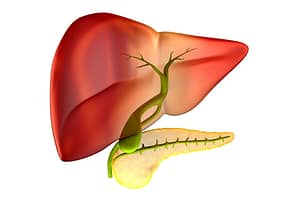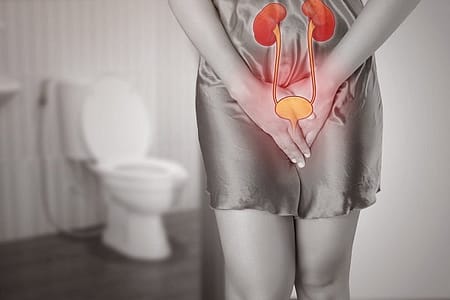What is Painless Hematuria?
Hematuria refers to the presence of blood in urine. Under normal conditions, urine does not contain blood in it. Painless hematuria can be referred to as gross hematuria or macroscopic hematuria in which the urine in blood can be seen through naked eyes. Having urinated blood doesn’t mean that the patient is having kidney problems. Painless hematuria is linked with urologic malignancies.
What Could be the Causes of Blood in Urine Without Pain?
Cystitis (Urinary infection)
Urinary tract infection occurs when bacteria enter the body through urethra and multiply in their numbers. Most cases of urinary infection are caused due to Escherichia coli (E.coli).
Symptoms of cystitis include urge to urinate, burning in urination and foul smell in urine.
Glomerulonephritis
Inflammation of kidney filters (glomeruli) is termed as glomerulonephritis. Glomeruli help in removing excess fluids, electrolytes, and waste from the bloodstream and pass them through urine.
Glomerulonephritis is the most common cause of painless hematuria. Its diagnosis can be confirmed by blood and urine tests. In some cases, a precise diagnosis can be made with a kidney biopsy.
Kidney Infections
These infections can occur when bacteria enter the kidneys through blood stream. Kidney infections are a type of urinary tract infections (bladder, urethra or ureter). The condition is characterized by unpleasant illness, vomiting, fever, chills, nausea, pusin urine and blood in urine. Several symptoms of kidney infection are similar to bladder infection.
Bladder Cancer
Blood can be easily seen in urine in most cases of bladder cancer. Painless blood urination is observed in bladder cancer patients very often (in approximately 80% of the cases).
Sickle cell anemia
People with sickle cell anemia may develop painless hematuria. Sickle cell anemia is associated with papillary necrosis. It can be diagnosed through blood cell counts, urine cytology study, and ureteroscopy.
Enlarged prostate gland
The prostate gland is located just below the bladder and covers the top part of the urethra. It enlarges in size with age. The condition is known as enlarged prostate. The prostate gland compresses the urethra, which partially blocks the urine flow. Symptoms include urgent need to urinate, visible or microscopic blood in urine and difficulty in urination.
Bleeding disorders
Blood clotting abnormalities like hemophilia can cause blood to pass in urine which is usually painless. Cardiac patients who take anti-blood clotting medicines (such as warfarin) are prone to hematuria.
Kidney injury
Another common reason for blood in urine could be an injury to the kidney from an accident or a sport contact. This leads to accumulation of waste products in the blood which makes it hard for the kidneys to keep the right balance of fluid in your body. Kidney injury may also be a reason for painless hematuria.
Medications
Medications that may lead to hematuria include anti-cancer drugs (cyclophosphamide), penicillin, sulpha drugs and aspirin etc.
Prostate cancer
Prostate cancer is also associated with painless hematuria. Blood in urine is usually found in the advanced stages of prostate cancer.
What to do if I Notice Blood in Urine Without Pain?
If you find blood in your urine without any pain, don’t ignore it and consult a doctor for finding out the reason of blood. While in some cases, it is simply treated with medicines or care, but some cases may need serious treatment and follow-up. Your doctor will ask for repeated urine tests before recommending any medications. Some tests may include cystoscopy, kidney imaging like ultrasound, CT scan and MRI, etc.
FAQs
Can Kidney Stones Cause Painless Hematuria?
Kidney stones are generally painless. Their presence cannot be felt until they cause blockage. Kidney stones can cause both painless hematuria and microscopic hematuria (Painful hematuria). Kidney stones can cause extreme pain in some cases.
Is Painless Hematuria Always Cancer?
Most common symptom of bladder cancer is blood in urine without pain (painless hematuria). Proper treatment is needed if a patient is diagnosed with hematuria. It might be due to some serious problem.
Is Long Term Hematuria Dangerous?
Seeing blood in urine can be frightening. Hematuria can b a clinical sign of urinary tract malignancy. It should be treated as early as possible because a long-term leakage of urine may lead to bladder tumor, prostate cancer etc. It can also lead to kidney failure.
What Percentage of Painless Hematuria is Cancer?
Painless hematuria is the most common symptom of cancers like bladder cancer and prostate cancer. It is found that about 20% of all painless hematuria patients have bladder cancer.
What is painless visible hematuria?
Painless visible hematuria refers to the presence of blood in the urine that can be seen with the naked eye but does not cause any pain or discomfort during urination.
What is the most common cause of painless hematuria in adults?
The most common cause of painless hematuria in adults is kidney stones. Other possible causes include urinary tract infections, bladder or kidney cancer, and prostate problems.
What is the most common cause of asymptomatic hematuria?
The most common cause of asymptomatic hematuria is usually benign, and the cause may not be identified in up to 30% of cases. Other possible causes include urinary tract infections, kidney stones, bladder or kidney cancer, and certain medications.
What is the difference between painful vs painless hematuria?
Painful hematuria is associated with pain or discomfort during urination, while painless hematuria does not cause any pain or discomfort. The underlying causes of each can differ.
Why do I have hematuria but no infection?
Hematuria can be caused by a variety of factors, including urinary tract infections, but it can also be caused by other conditions such as kidney stones, bladder or kidney cancer, or certain medications. It is important to consult a healthcare professional to determine the underlying cause of hematuria.






